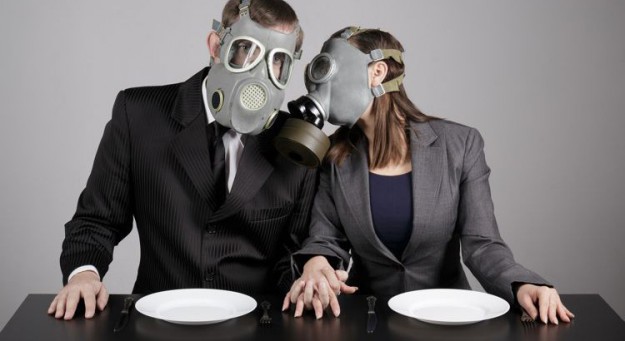How do we stop living in fear?
mis à jour le 14 July 2015 à 18:33Relay antenna, GMOs (genetically-modified organisms), radioactivity… Do we all look towards the future filled with fear? In his book "The Human Planet", Gérald Bronner, Professor of Sociology, denounces this new ideology of fear and precaution. Here's what he has to say on the matter.
Your book talks about the numerous movies showcasing the apocalypse. In what way is this symptomatic of our time?
Gérald Bronner: The main idea running through these movies, from The Matrix to Resident Evil, is that the human race can, and will, destroy the world. This fear is so widespread that it has become the most popular form of fiction. The end-of-the-world scenarios are now the dominant stories of our common future. It shows how much people have been contaminated by imagining the worst.
How would you define this idea?
Gérald Bronner: This idea focuses its attention on the possible, albeit unpredictable, consequences of our actions. It is what the philosopher Hans Jonas called the "heuristics of fear". However, excessive caution favours those opposed to change, rather than the movement; as in the famous maxim: "when in the doubt, refrain!" A scientific or technological innovation always has unforeseen consequences. We can never be 100% sure that it implies no danger. And even though they would be for the present, we can't be sure of anything in the future.
You speak of a "bottleneck of fear"
Gérald Bronner: Yes, the world has become hysterical about public health, agriculture, energy production, food supplies, and so on. In other words, our entire technological environment. We are afraid of the food on our plates, as if we are living in a poisonous environment. New alerts seem to be flagged every week. Of course, some of these fears are well-founded; I don't deny this.
Can you give an example of this?
Gérald Bronner: The decreased effectiveness of antibiotics is, for example, a real danger. But today, the most extreme risks are overestimated. The endless stream of alerts also creates a bottleneck of fear because disproving them takes time, especially where sanitary issues are concerned. Moreover, the denials always receive less publicity than the craziest rumours, especially on the internet.
What is the precise role played by the Internet and social network?
Gérald Bronner: They serve to radicalise the debates. This is known in social psychology as the polarization effect. When a group of people discuss issues on the internet, they emerge with more extreme opinions. The web also favours the mass distribution of disturbing information. Faiths previously confined to radical groups are becoming widespread on a global scale. I think, among other things, about the increasing distrust of relay antennae and vaccines.
Do you believe that this phenomenon is dangerous?
Gérald Bronner: Fear produces inactivity without considering the consequences; therefore, fear can be much worse than the action. In summary, in the case of vaccines, the fear associated with their possible side effects contribute to the reduction of vaccinated people, which, in turn, will cause numerous deaths in future generations. Fear also prevents us from taking initiatives and being audacious; in particular, in the industrial or scientific world. This will be detrimental to the future.
You said that it is imperative to develop a "new risk culture". What do you mean?
Gérald Bronner: You need to reconcile with the threat and stop believing that the panacea is to stop taking risks. It is rather a nightmare! To bring a child into the world, for example, is terrifying when we think about it. We jump into the unknown, but, once this risk taken, we could not live without it; indeed, life would lose all its sense. I think that it would also be necessary to write novels, poetry, movies or philosophical texts to revitalize our collective future and restore some hope; without being naive, of course.
Concretely, how do we achieve this?
Gérald Bronner: Let's stop living in fear! To do this, it is necessary to make a mental declaration of independence, in order to develop the critical mind, beginning by contemplating our own thoughts. It also requires us to really inform ourselves. There are some very reliable websites, such as the Science Academy or the National Academy of Medicine. These offer well-balanced information, with explicit sources and argued points of view. It seems to me that people need to regain their trust in scientific expertise and the competence of medical authorities.
Fabienne Broucaret




